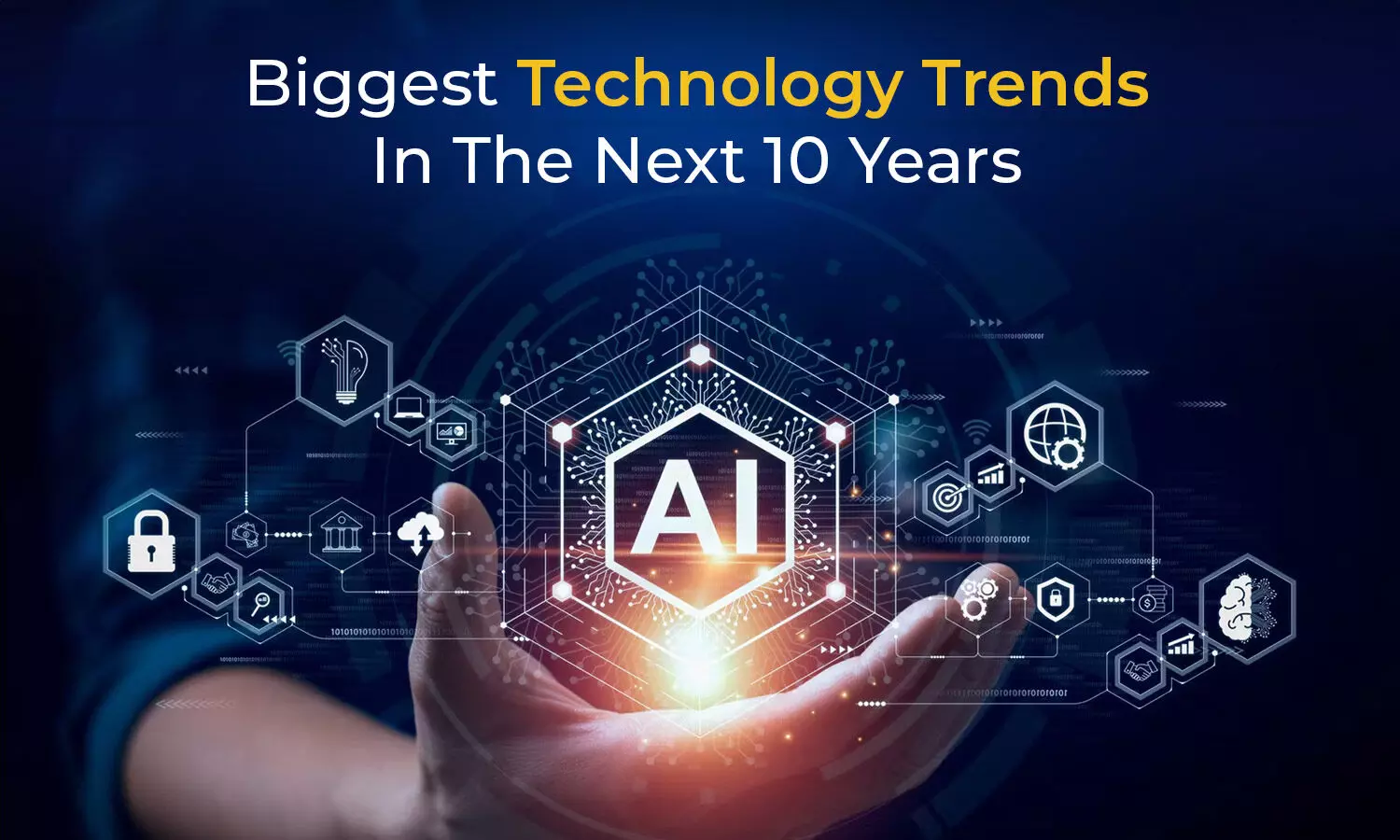Future technology trends: What to expect by 2034
Explore the major technology trends shaping the next decade, including AI, digital integration, biotechnology advancements, sustainability, and ethical considerations, and discover how these developments will impact our lives by 2034.
Future technology trends: What to expect by 2034

As we advance towards 2034, the technological landscape is set to undergo significant transformations. While it is challenging to predict the future with absolute certainty, examining current trends offers valuable insights into how technology will reshape our lives. Here are some of the most impactful technology trends expected over the next ten years.
1. The Ubiquity of AI and Automation
Key Developments:
- Integration Across Sectors: AI will permeate various industries, enhancing productivity and efficiency in areas such as healthcare, finance, and transportation.
- Natural Language Processing: Advances in NLP will enable more natural interactions with machines. By 2034, voice commands may replace traditional interfaces, making technology more accessible.
- Task-Specific Robotics: Specialised robots will become commonplace in sectors like manufacturing and logistics, performing tasks with precision that exceeds human capability.
Implications:
- Workforce Transformation: While AI could automate routine tasks, it also raises questions about job displacement and the future of work.
- Societal Impact: The socioeconomic divide may widen if the benefits of AI are concentrated among a tech-savvy elite. How society responds to these changes will shape the outcomes.
2. Blurring Boundaries Between Digital and Physical Worlds
Key Developments:
- Immersive Experiences: Virtual reality (VR) and augmented reality (AR) technologies will evolve, providing richer, more engaging digital environments.
- Cultural Shifts: Younger generations may find themselves spending increasingly more time in digital realms, where interactions and experiences mirror those in the physical world.
Implications:
- Identity and Social Interaction: The merging of these worlds could redefine concepts of identity, community, and even entertainment, as individuals navigate both spaces simultaneously.
- Potential Backlash: A possible pushback against excessive digital engagement may arise, especially among younger generations, leading to a renewed appreciation for physical experiences.
3. Revolutionising Healthcare Through Biotechnology
Key Developments:
- Genetic Engineering Advances: Technologies like CRISPR-Cas9 could allow for the correction of genetic disorders before birth, reducing the incidence of hereditary diseases.
- Personalised Medicine: The future of healthcare will increasingly rely on genetic information to tailor treatments to individual patients, enhancing efficacy and outcomes.
Implications:
- Ethical Considerations: These advancements raise crucial questions about consent, accessibility, and the potential for genetic discrimination. Society must address these issues proactively to ensure equitable access to new technologies.
- Health Outcomes: With the potential for longer, healthier lives, the focus will shift from treating diseases to preventing them, fundamentally changing healthcare delivery.
4. Sustainability as an Imperative
Key Developments:
- Climate Action Technologies: Innovations aimed at reducing carbon emissions and promoting renewable energy will become vital as the consequences of climate change become increasingly severe.
- Regulatory Changes: Governments may implement stricter regulations on industries to compel them towards sustainable practices, driven by environmental crises.
Implications:
- Economic Shifts: Businesses that prioritise sustainability will not only comply with regulations but also gain a competitive edge, as consumers increasingly favour eco-friendly practices.
- Technological Integration: Expect to see sustainable practices embedded in technology, from renewable energy powering data centres to circular manufacturing processes that minimise waste.
5. Ethical Frameworks and Data Privacy
Key Developments:
- Data Protection Concerns: As technology evolves, so do concerns regarding data privacy and security, especially in healthcare and AI applications.
- Ethical AI: The push for ethical standards in AI development will become crucial, focusing on transparency, accountability, and fairness in algorithms.
Implications:
- Trust in Technology: Building consumer trust will be essential as technologies become more pervasive. Organisations must prioritise data protection and ethical practices to maintain public confidence.
- Policy Development: Governments and institutions will need to develop robust frameworks to address the ethical implications of emerging technologies, ensuring that advancements benefit society as a whole.
As we navigate the next decade, the interplay between AI, digital immersion, biotechnology, sustainability, and ethical considerations will shape our future. These trends not only promise to enhance our quality of life but also pose significant challenges that require careful management. By anticipating these changes and addressing the accompanying ethical questions, we can work towards a future that harnesses technology for the greater good while promoting equity and sustainability. The choices we make today will set the course for the world we inhabit in 2034 and beyond.

